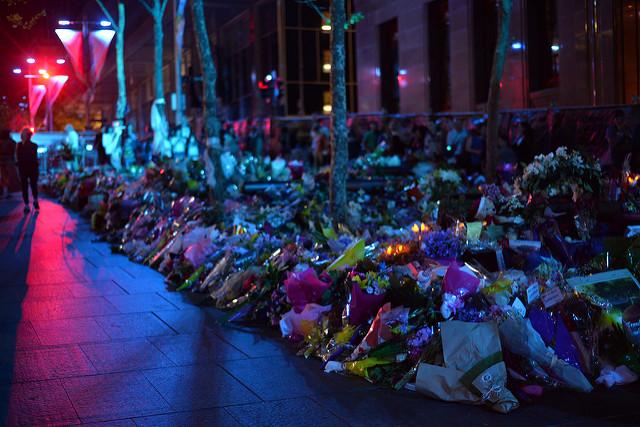Agenda for Change 2016: counterterrorism
Posted By Jacinta Carroll on June 1, 2016 @ 11:00

This piece is drawn from Agenda for Change 2016: strategic choices for the next government [1].
The day-to-day focus of most of a government’s time in office is on matters seemingly unrelated to terrorism and counterterrorism. Social policy, the economy, employment, industry and defence are among the things that will most regularly come to the government’s attention and absorb its time. But when terrorist attacks occur, the government’s attention will be focused on nothing else.
The incoming government’s time in office will witness both terrorist attacks in Australia and attacks overseas affecting Australians and Australia’s interests. Australians will continue to feature among the perpetrators and supporters of terrorism.
Three-quarters of post-9/11 attacks and disrupted plots in Australia have occurred since September 2014, when Australia’s terror alert level was first raised to ‘PROBABLE’ (a terror attack is likely). Australia has experienced three attacks and nine disrupted plots to date. Around 110 Australians are fighting in terrorist groups in Iraq and Syria, 50–59 have been killed and around 40 have returned to Australia. Another 177 have been prevented from leaving Australia through passport cancellation, and 33 have had their passports suspended. Agencies are currently investigating around 400 terrorism cases.
Plenty of government resources have been invested in counterterrorism. The public reasonably expects that the threat of terrorism will be contained, plots will be disrupted and—importantly—a clear and well-exercised response capability will be demonstrated should an incident occur. Work done by law enforcement and security agencies to date to counter terrorism and violent extremism has held Australia in good stead, but this is a dynamic area for policy. Effective counterterrorism requires ongoing attention and incremental improvement.
Many counterterrorism-related programs and initiatives are in place under the Commonwealth, state and territory governments. But there’s no shared strategy, framework and plan linking and directing them towards collective goals. There’s also no common platform of easily accessible information communicating Australia’s counterterrorism efforts to the Australian public and the international community.
A strategic plan for counterterrorism should explain the terrorist threat, what the government’s doing and what it plan to do, and provide a structure to guide future activity. The 2015 Counter-Terrorism Strategy [2] provides a foundation for this work, as it describes a shared vision of the problem and work that’s underway.
The strategic plan for counterterrorism would take that further to direct and frame future shared activity and provide guidance to all stakeholders—the Commonwealth, states and territories, businesses, community—on the full program of activity. The plan could also provide the basis for a public counterterrorism annual report.
Regular counterterrorism training exercises for Australia’s decision-makers would put the government in the best position to respond to a real life attack. Scenarios informed by real assessments across the threat spectrum should be used regularly to familiarise the Prime Minister, the premiers, relevant ministers, statutory office-holders and commanders with what they must do when an incident occurs.
Australia could benefit from formal, ongoing programs and procedures to review the exercise and draw lessons from and for all stakeholders, consisting of:
- a ‘quick look’ review of what happened and the lessons learned, completed within four weeks of a terrorist incident (attack or significant disruption)
- a more comprehensive review of the incident, completed within eight months
- an implementation plan to address lessons learned
Sharing information—particularly classified intelligence—with those who need it to perform their counterterrorism roles remains a challenge. The Commonwealth Government is best placed to lead in that domain and should establish a mechanism to optimise the sharing of sensitive information and intelligence between Commonwealth and state government agencies.
Countering violent extremism requires a complex and multifaceted response. The most effective interventions will be at the local level and driven by the community. Government can add the greatest value to this cause by facilitating and supporting such actions and giving stakeholders the opportunity to share their experiences and program knowledge, as well as raising public awareness.
The Commonwealth should sponsor the establishment of research and practitioner networks and a resource database of educational material for stakeholders, including educators, the media, vulnerable communities and youths.
Another powerful role for government is in countering online extremist narratives. The Commonwealth could work with both domestic and international partners to provide a strong and active voice across all forms of media explaining Australia’s counterterrorism methods and countering the claims and narrative of extremists. This could be complemented by community and youth group-led initiatives.
The business sector and the broader community also have the potential to be significant enablers in Australia’s counterterrorism efforts. There should be increased engagement with business, industry, the media and community groups to prevent, respond to and recover from terrorism.
Our near region makes countering extremism and terrorism of integral importance to Australia. The incoming government should consider developing a counterterrorism and CVE initiative in partnership with our neighbours, focused on Southeast Asia and the broader Asia–Pacific. Australia could also help develop regional capability by promoting a regional CVE network and resource database.
Counterterrorism is a complex area of policy. There are few, if any, quick fixes, and most policy, operational and legal actions taken to counter terrorism and extremism have a downside and potential unintended consequences. To be effective, counterterrorism activities and programs must be well considered and put in place for the long term.
The Commonwealth Government can take the lead in bringing the various stakeholders and issues together and providing common strategy, guidelines and resources to counter terrorism and violent extremism. Without a coordinated response, Australia risks being surprised when the next attack occurs and suboptimal in our response to it.
Article printed from The Strategist: https://aspistrategist.ru
URL to article: /agenda-change-2016-counterterrorism/
URLs in this post:
[1] Agenda for Change 2016: strategic choices for the next government: https://www.aspistrategist.ru/publications/agenda-for-change-2016-strategic-choices-for-the-next-government
[2] 2015 Counter-Terrorism Strategy: https://www.nationalsecurity.gov.au/Media-and-publications/Publications/Documents/Australias-Counter-Terrorism-Strategy-2015.pdf
Click here to print.